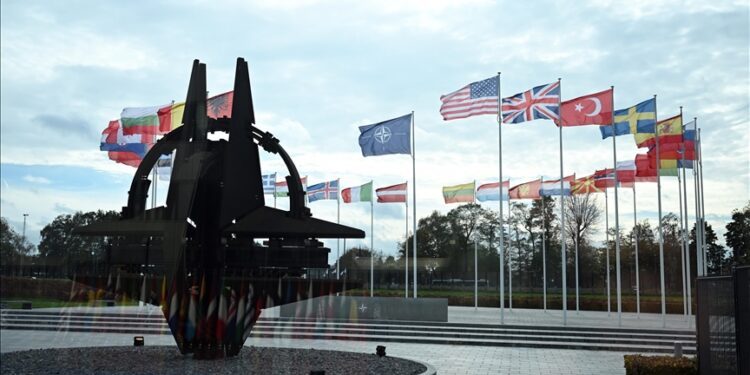GENEVA
NATO on Thursday launched two new multinational high-visibility initiatives to further enhance the protection of its airspace and strengthen its deterrence and defense.
At a signing ceremony held at NATO headquarters in Brussels, 15 allies committed to developing more efficient solutions to lower-level air threats—threats flying below 500 feet/150 meters.
Those 15 allies include Belgium, Denmark, Estonia, Finland, France, Greece, Latvia, Lithuania, the Netherlands, Norway, Portugal, Romania, Spain, Türkiye, and the UK.
In addition, the same 15 allies, plus the Czech Republic, launched a multinational initiative on passive air surveillance, such as noise detection, the alliance said in a statement, calling it essential to identify incoming threats undetectable by active air surveillance capabilities such as radars and satellites.
“The war in Ukraine has shown how effective and dangerous technologies such as small drones can play in conflict,” it said. “Increasing NATO’s ability to detect, identify, track and respond to these new threats while exploiting technological advances for enhanced deterrence and defence is essential to the Alliance.”
Through the lower-level air threat and passive air surveillance projects, participating allies will seek to develop and acquire new capabilities together, but also increase interoperability between national capabilities at reduced costs and higher operational benefits, it added.
At the ceremony, allies also welcomed new members to existing projects. Romania joined Denmark, Germany, Greece, Italy, Hungary, the Netherlands, Norway, Slovenia, Spain, and the UK in the Modular Solution for Ground-Based Air Defense Capabilities (Modular GBAD). Launched in 2023, the project aims at developing a modular solution to counter air threats at very short, short, and medium ranges.
Portugal and Türkiye joined the Multinational Ammunition Warehousing Initiative (MAWI), which seeks to reinforce and streamline the prepositioning and management of ammunition stockpiles. Established in 2021, the initiative now counts participation from 26 allies.
The UK also became the 21st member of the Cross-Border Airspace Initiative, which launched in October 2023 to increase coordination between allied civil and military authorities on the use of airspace for NATO training and exercises and other air activities in several regions of Europe.






